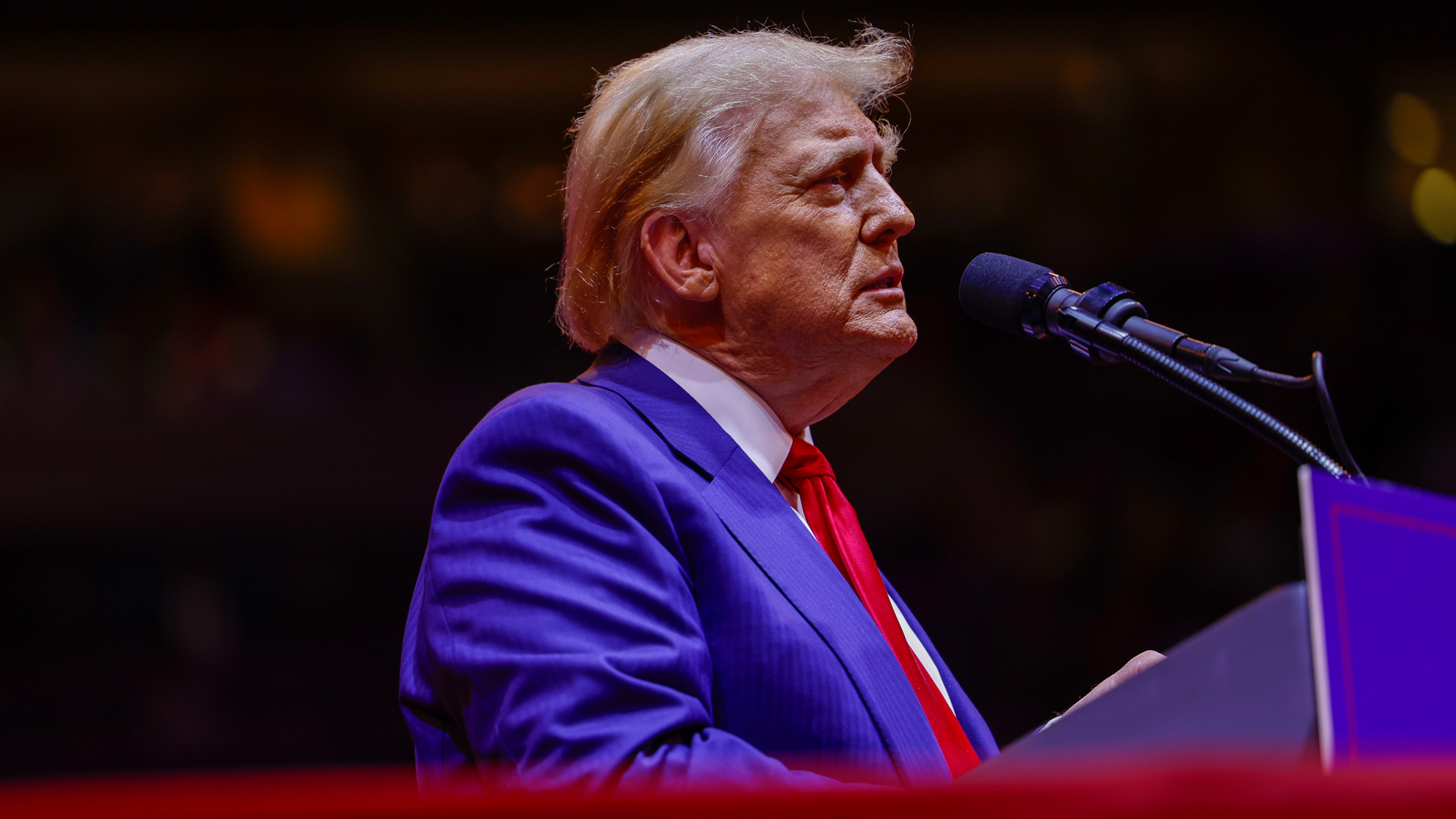Life in the post-truth era
The mainstream media can't hold back a tsunami of misinformation

A free daily email with the biggest news stories of the day – and the best features from TheWeek.com
You are now subscribed
Your newsletter sign-up was successful
If Donald Trump wins on Nov. 5, it will be partly because the traditional press failed to present the former president as he truly is. That's the argument put forward by many media critics, who accuse The New York Times, CNN, The Washington Post, and other legacy outlets of "sanewashing" Trump: selectively quoting or editing his rambling, threat-filled, and profanity-laced rally speeches. This habit stems from mainstream news outlets wanting to appear "objective," the argument goes. If they did accurately cover Trump's extremism and bizarre behavior, it would look like they were in the tank for Democrats.
As a result, Trump's repeated pledge to round up and deport millions of undocumented immigrants, whom he has called "animals" and "not human," gets labeled by the Times as "hyperbolic rhetoric" rather than 100-proof authoritarianism. And his weird disquisitions — about whether it's better to be eaten by a shark or to die from electrocution, for example — go unmentioned in many reports on campaign events, which instead focus on sane-sounding policy announcements, such as eliminating taxes on tips.
These are valid criticisms, but they vastly overplay the ability of mainstream media to shape the national conversation. Newspapers and network news have shrinking audiences, while social media is grabbing ever more eyeballs. About 50 percent of Americans now go to platforms like TikTok, X, and Instagram to get their news — where they also get a flood of disinformation served up by influencers, hucksters, and propagandists. A Russian-created fake video smearing Democratic vice-presidential nominee Tim Walz with abuse allegations has been viewed some 5 million times on X. Millions more have seen bogus AI-generated images of Trump wading through the floodwaters in the wake of Hurricane Helene, feeding a Trump-backed narrative that only he — and not the Biden administration — cares about the storm's victims. Clearly, we have a reality problem, but it's one that traditional media is largely powerless to fix.
The Week
Escape your echo chamber. Get the facts behind the news, plus analysis from multiple perspectives.

Sign up for The Week's Free Newsletters
From our morning news briefing to a weekly Good News Newsletter, get the best of The Week delivered directly to your inbox.
From our morning news briefing to a weekly Good News Newsletter, get the best of The Week delivered directly to your inbox.
This is the editor's letter in the current issue of The Week magazine.
A free daily email with the biggest news stories of the day – and the best features from TheWeek.com
Theunis Bates is a senior editor at The Week's print edition. He has previously worked for Time, Fast Company, AOL News and Playboy.
-
 Political cartoons for February 20
Political cartoons for February 20Cartoons Friday’s political cartoons include just the ice, winter games, and more
-
 Sepsis ‘breakthrough’: the world’s first targeted treatment?
Sepsis ‘breakthrough’: the world’s first targeted treatment?The Explainer New drug could reverse effects of sepsis, rather than trying to treat infection with antibiotics
-
 James Van Der Beek obituary: fresh-faced Dawson’s Creek star
James Van Der Beek obituary: fresh-faced Dawson’s Creek starIn The Spotlight Van Der Beek fronted one of the most successful teen dramas of the 90s – but his Dawson fame proved a double-edged sword
-
 Why are election experts taking Trump’s midterm threats seriously?
Why are election experts taking Trump’s midterm threats seriously?IN THE SPOTLIGHT As the president muses about polling place deployments and a centralized electoral system aimed at one-party control, lawmakers are taking this administration at its word
-
 ‘Restaurateurs have become millionaires’
‘Restaurateurs have become millionaires’Instant Opinion Opinion, comment and editorials of the day
-
 Should the EU and UK join Trump’s board of peace?
Should the EU and UK join Trump’s board of peace?Today's Big Question After rushing to praise the initiative European leaders are now alarmed
-
 Witkoff and Kushner tackle Ukraine, Iran in Geneva
Witkoff and Kushner tackle Ukraine, Iran in GenevaSpeed Read Steve Witkoff and Jared Kushner held negotiations aimed at securing a nuclear deal with Iran and an end to Russia’s war in Ukraine
-
 Kurt Olsen: Trump’s ‘Stop the Steal’ lawyer playing a major White House role
Kurt Olsen: Trump’s ‘Stop the Steal’ lawyer playing a major White House roleIn the Spotlight Olsen reportedly has access to significant US intelligence
-
 Trump’s EPA kills legal basis for federal climate policy
Trump’s EPA kills legal basis for federal climate policySpeed Read The government’s authority to regulate several planet-warming pollutants has been repealed
-
 House votes to end Trump’s Canada tariffs
House votes to end Trump’s Canada tariffsSpeed Read Six Republicans joined with Democrats to repeal the president’s tariffs
-
 Bondi, Democrats clash over Epstein in hearing
Bondi, Democrats clash over Epstein in hearingSpeed Read Attorney General Pam Bondi ignored survivors of convicted sex offender Jeffrey Epstein and demanded that Democrats apologize to Trump